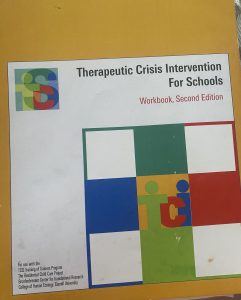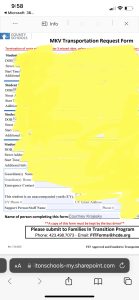Competency 1 Demonstrate ethical and professional behavior
As a professional social worker, it is imperative to understand the value base of the profession along with its ethical standards and relevant laws and regulations, which may impact future clients at the micro, mezzo, and macro levels. It is my due diligence to recognize and manage personal biases as they affect professional behavior and decision making, as well as navigating discrepancies within inter-professional relationships. I will understand and identify professional strengths, limitations, and challenges and demonstrate professional use of self with clients including boundaries, self-disclosure, and self-care. As social workers, we understand the vitality of effective communication, and I will do so with colleagues as well as to professionals from other disciplines. I recognize the importance of life-long learning, and I am committed to continually working on updating my skills to ensure they are relevant as well as effective.
1.1: Develop a practice framework for analysis of complex environments, that is ethical, value-grounded, and evidence based.
Course Evidence: In my Advanced Administrative Practice: Administrative and Leadership Skills class, I worked alongside three group members to develop a non-profit organization over the course of a semester. This organization focused on providing support to male victims of human trafficking with a value based and ethical approach. Our organization “Green Light” focused on restoring life for males of human trafficking and assisting them with re-entering their lives. To view my practice framework that is ethical, and evidence based, please refer to page 30 under the table of contents. Please click here.
1:2: Implement supervisory and self-care strategies that integrate professional strengths, limitations, and challenges.
Course Evidence: In my Advanced Clinical Practice: Group Psychotherapy class I had the opportunity to write several papers reflecting experiences that I had each week in group. Each week we had the opportunity to be a participant or a facilitator. These reflection papers were written after the in-class group practice sessions that I participated in and gave me the opportunity to write about how I felt either as a facilitator or participant as well as look at the academic skills that I used, or could work on improving in the future.This paper reflects skills I felt confident in as well as skills that I could improve upon.This paper also demonstrated the importance of self-care in order to be an effective social worker. It also demonstrates the need to discuss areas that I am less confident in during weekly supervision meetings with my field supervisor and come up with ways to improve upon these practices. Please reference page two of this paper in order to view my strengths, and limitations which were discussed in weekly supervision Group Reflection 4.
1:3: Exhibit commitment to professional growth through continuing education, supervision, and ongoing consultation
Course Evidence: Advancing my education in the MSW program has provided me with numerous opportunities for professional growth. In the course Advanced Administration (SOCW-612), I was able to go through CITI training and become CITI certified upon completion. This training helped me learn how to be ethical in practice, while also demonstrating the importance of confidentiality, informed consent, conflict of interest etc., which assisted me in displaying my knowledge of ethical research as well as ways to protect others and the integrity of my research in my academic courses. The knowledge gained from this training assisted me in making informed decisions each week in my practice and especially in designing assessments and Resrouce Fair evaluation. Please click here to view certificate.
Field Evidence: In my commitment to professional growth and continued education, I facilitated several groups focused on Restorative Practice. My field supervisor assisted me in this process by sharing information surrounding Restorative Practice as well as how to facilitate this method in a group setting with teachers and students. Many students appear to struggle with peer to peer interactions as well as peer to teacher relationships. Over the summer I participated in a training centered around this method of conflict resolution. This training involved ways to improve and repair relationships between people and communities as well as in schools. My field supervisor and I would discuss this intervention in our weekly supervision meetings.The purpose of Restorative Practice is to repair harm and restore relationships while encouraging behavior that is supportive and respectful.
1:4: Demonstrate professional, oral, and written communication skills
Field Evidence: While working in the school system, I had the opportunity to learn how to assist families with resources as well as transportation. Hamilton County Schools work in collaboration with F.I.T or better known as “Families in Transition” when they have families in need of shelter, transportation, food boxes, etc. On numerous occasions I had the opportunity to gather information and fill out a MKV Transportation Request Form. This form helps provide vital information about getting students in need to and from their homes to school in the mornings as well as in the afternoons.

Skills Used: Throughout my practice implementing these learning behaviors, I demonstrated skills in conflict resolution, empathy, active listening, communication, as well as organization.
Knowledge Used: Many courses assisted me in my academic journey throughout this competency and will continue to assist me in my future professional growth. My oral and written communication skills are displayed throughout this competency.
Values Present: The values that were presented throughout this competency were integrity, competence, and social justice.
Cognitive Processes Used: Cognitive processes displayed in competency one were demonstrated through orchestrating community events, collaboration with stakeholders, proposing plans to others, developing strategies for emotional regulation, as well as acquiring more knowledge through trainings and certifications.
Affective Processes Used: Affective processes generated throughout this competency were continued education, oral as well as written communication and conflict resolution brought about by means of channelling anger/conflict into strength-based approach.
Theoretical Foundation: This competency demonstrates the use of Credibility Theory as this theory builds rapport and fosters reliability in an individual. As a professional social worker, it is imperative for me to demonstrate credibility and professionalism in my communication both written and oral, as well as in my actions. With credibility instilled in my practice, I become a more trusted and reliable source of knowledge and hope for the future by sharing research that is backed by fact based evidence.